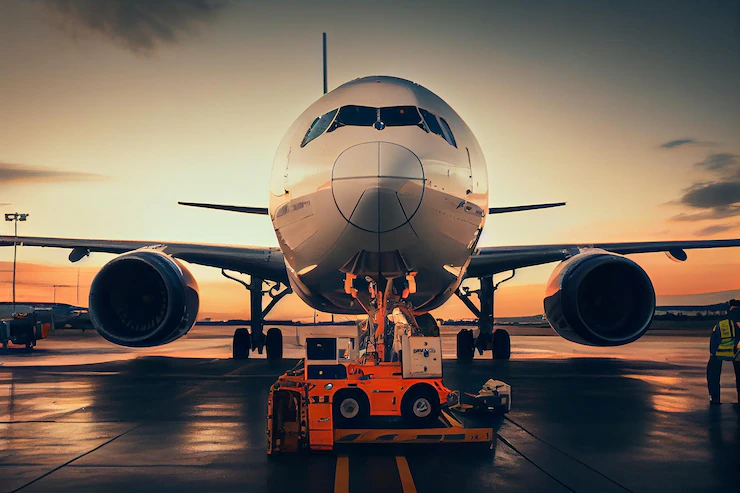Air cargo services have revolutionized global trade, connecting businesses and consumers with speed and efficiency like never before. This blog explores the fascinating journey of air cargo service, from its humble beginnings to the high-tech, fast-paced logistics network it has become today.
Air cargo services involve the transportation of goods and freight via aircraft. These services are vital for international trade, ensuring goods move swiftly across continents, often within days rather than weeks. Over the past century, air cargo has evolved dramatically, driven by advances in aviation technology, global economic growth, and changing consumer demands. Understanding this evolution sheds light on today’s sophisticated logistics landscape and highlights the importance of air cargo services, especially for trade routes such as import from China to Pakistan.
The Birth of Air Cargo Service
Early Beginnings (Pre-World War Era)
The story of air cargo began in 1910 with a landmark flight carrying 200 pounds of silk by airplane in the United States. This flight outpaced traditional train delivery, proving that air transport could offer faster shipping. At the time, aircraft were small and had limited payload capacity, which kept air cargo to light and urgent items, including airmail, one of the earliest regular uses of cargo services. Postal services across the world pioneered these early air freight experiments.
Air Cargo in the World Wars
Both World Wars accelerated the development of cargo aircraft. Military needs demanded faster, more reliable transport for troops, weapons, and supplies. This led to innovations in aircraft design, with larger planes and enhanced payload capacities. These advances laid the foundation for the post-war expansion of commercial air cargo service.
Post-War Expansion and Commercialization
After the end of World War II, commercial airlines recognized the untapped potential of dedicated cargo transport. The formation of the International Air Transport Association (IATA) in 1945 facilitated the coordination and standardization of air freight operations globally. Dedicated cargo airlines began emerging alongside passenger carriers that also transported goods. The period marked a rapid expansion of global air cargo services networks connecting major cities and trade hubs worldwide.
Technological Advancements in Air Cargo
Aircraft Innovations
The late 1960s witnessed a game-changing leap with the introduction of wide-body jets like the Boeing 747. These aircraft dramatically increased cargo volume and range, transforming air freight logistics. Specialized cargo planes such as the Boeing 747F were developed expressly for freight, optimized for large pallets and containers.
Containerization and Standardization
The invention of Unit Load Devices (ULDs) greatly improved operational efficiency by enabling cargo to be loaded and unloaded quickly and securely. This standardization reduced turnaround times and minimized damage risks.
Tracking and IT Integration
Modern logistics benefitted hugely from IT advancements. In the 1990s, companies like FedEx introduced real-time tracking systems, allowing customers to follow shipments’ progress over the entire route. This transparency boosted trust, reliability, and demand for air cargo services.
Role of Regulations and Trade Agreements
International standards, led by organizations like IATA, alongside evolving customs and import-export regulations, have streamlined air cargo’s global operations. Bilateral and multilateral trade agreements have further opened routes and reduced barriers, benefiting key logistics corridors such as china to pakistan shipping.
The Modern Era of Air Cargo
Globalization and E-commerce Growth
The e-commerce boom has dramatically increased the need for fast and reliable air cargo services. Online giants such as Amazon and Alibaba depend heavily on air cargo services to fulfill millions of orders worldwide every day. Businesses looking to import from China to Pakistan benefit enormously from the speed air cargo services offer, often finishing deliveries within days, a crucial advantage over sea freight.
Cold Chain Logistics
Today’s air cargo services specialize in transporting perishable items like food, pharmaceuticals, and vaccines under precise temperature controls, known as “cold chain logistics.” This area has grown especially important during health crises and for global food supply chains.
Green Initiatives
Sustainability has become a key focus. The aviation industry is investing in greener technologies, including electric and hybrid aircraft prototypes and fuel efficiency improvements, to reduce the environmental impact of air cargo services.
Challenges Facing the Air Cargo Industry
Despite remarkable growth, challenges remain:
- Rising fuel costs impact operational expenses.
- Capacity shortages during crises such as the COVID-19 pandemic exposed vulnerabilities in air cargo services networks.
- Geopolitical tensions sometimes disrupt established trade routes and complicate customs clearances.
The Future of Air Cargo Services
Innovation continues to push air cargo forward:
- Development of autonomous cargo planes and AI-based logistics management promises enhanced efficiency.
- Drone deliveries could revolutionize last-mile logistics, especially in remote areas.
- Integration of blockchain technology aims to improve transparency and security in global supply chains.
Conclusion
From a small silk shipment in 1910 to today’s technology-driven global air cargo services networks, the industry has advanced tremendously. They remain a cornerstone of international trade, particularly in bustling corridors such as import from China to Pakistan. With ongoing innovations and a focus on sustainability and efficiency, the future of air cargo services looks promising.
For businesses and individuals looking to navigate the complexities of international shipping, partnering with a trusted logistics company offering tailored Pakistan cargo services and expertise in DDP shipping can make all the difference. Companies like EB Logistics provide reliable and professional air cargo services that ensure your goods move safely and quickly across borders.
